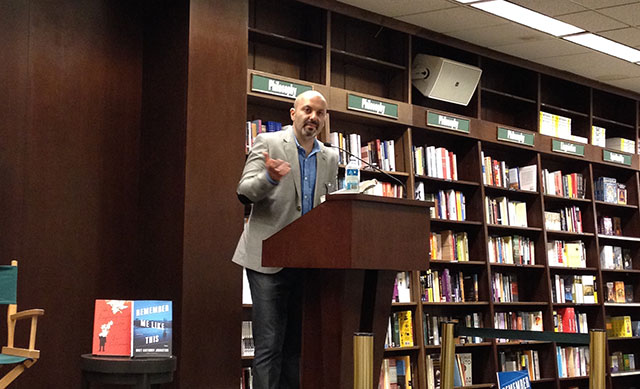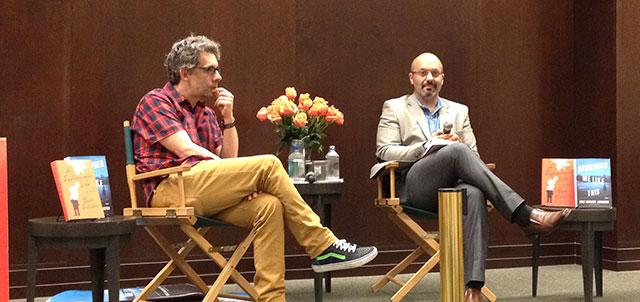
Boris Fishman’s A Replacement Life (June 2014) merges an immigrant narrative with a political caper as a group of eastern Europeans settling in New York City defraud the German government of holocaust reparations.
“I don’t think anyone sits down and says they’re going to write a killer immigrant story,” he says. He finds the criminal element of his novel more interesting.
He mapped his novel before writing it. It took four years and twelve drafts. He has a second novel close to completion, and for this second book, he suggests he spent less time worrying about plotting the overall story. He says that deciding what will happen before its written makes the whole process of writing more difficult. He resists deciding what will happen beyond the next few pages as he writes.
Fishman says that he knows a novel is finished when the main character has lost something essential and learned something in the process. “Never re-read your novels [after publication],” he warns (But re-read many times before that, he adds).
Reading other authors is essential to Fishman’s process. He likes to start off a writing session by reading someone else. “I will always read someone else for an hour,” he says.

There are good days–moments that make a writer feel like a god, Fishman explains. And then there are days that really suck. Fishman concentrates on simply improving word by word. “Is my sentence as good as the guy I read this morning?” All he can ever do is decide whether he likes his words. Publication is up to other people.
He says he tried to limit his research as much as possible. He did some family interviews, but that was all. About a year after he began writing the novel, the scheme to defraud the Germans played out in real life, much in the way he imagined it. People asked him if the novel was autobiographical, but it wasn’t. “Things that happen in real life don’t necessary make good fiction,” he says.